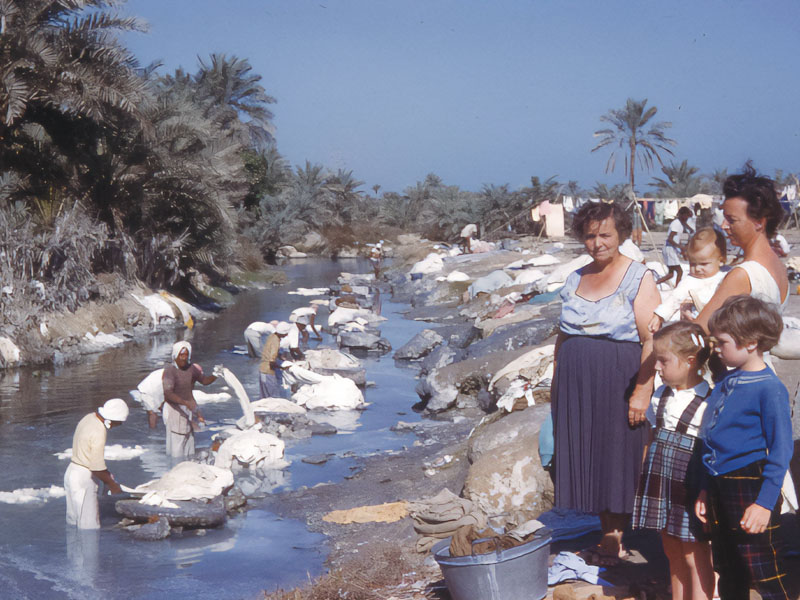A history of clothes washing in Bahrain: An analytical historical study
Issue 36

Hussein Mohammed Hussein
Bahrain
In Bahrain, the washing of clothes is an old profession that no longer exists. This profession – known as ‘Qassarin’ - was once practiced across the Arab world.
The Qassarin were a distinct labour class mentioned in ancient civilisations such as that of Mesopotamia, which had a significant influence on the Dilmun civilisation in Bahrain.
People have discovered contracts with Qassarin in cuneiform writings dating back to the 6th century BC (Waerzeggers, 2006). During the Islamic era, the Qassarin grew until a whole market was dedicated to the people of this profession.
Bahrain was no exception; several specialised markets were built for Qassarin. Those markets took the form of compounds. In Manama, for example, every district has a market named after an ancient profession. This naming system existed between the 12th and 18th centuries AD before Manama Market was constructed.
In addition to these specialised districts, which existed in the old centre of trade, the Qassarin washed clothes at the ‘Spring of Qassarin’. The spring was so vast that it extended from the old city to Al Barhama. There were many springs attached to the main spring, so it was divided into the Big Qassarin Spring and the Small Qassarin Spring.
In conclusion, Qassarin is one of the oldest, largely undocumented professions in Bahrain. The profession was widely known in the 14th century AD, and it was practised until the 1970s. In the 1930s, many Bahrainis who washed clothes worked at the Small Qassarin Spring, which has been called Al Dubiyyah Spring since the 19th century when it was restored to use by a number of Indian merchants. This spring was the most important clothes-washing site in Bahrain at that time.







































































